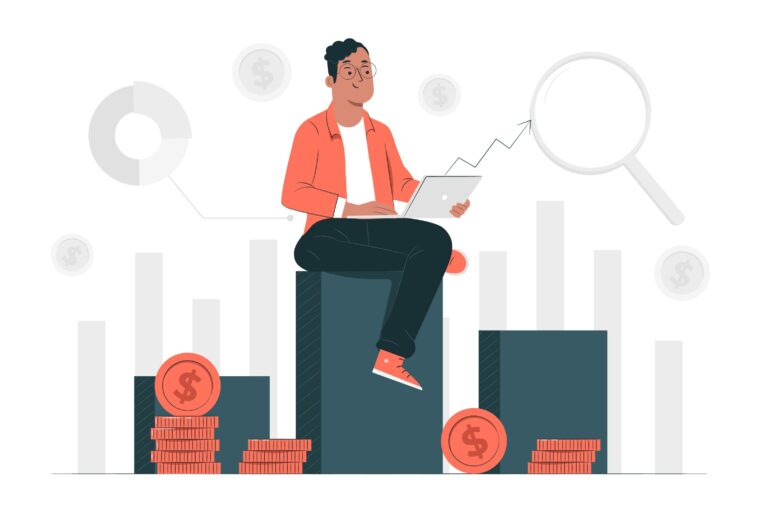A loan is an arrangement in which a borrower receives money from a lender and pays back both the principal plus interest over an agreed upon period of time.
Selecting the ideal loan for your needs is essential, as it determines how much you’ll pay and when you must pay it off. Research different loan types and learn how to shop around for competitive rates and terms.
Types of loans
Loans can be a great way to finance college expenses, purchase a new car or stock your pantry. They’re available from many lenders such as banks and credit unions; however, you must know what to look out for before applying.
Loans are financial obligations you borrow from a lender in exchange for interest payments. They come in various forms, such as mortgages, personal loans and car loans; some of them secured while others not so much.
Secured loans are secured by collateral, such as a car or savings account. As a result, you pay lower interest rates than with unsecured loans; however, should you default on the loan, you could potentially lose the asset in question.
Unsecured loans, on the other hand, lack any collateral backing them. This puts lenders at greater risk of financial loss if you don’t pay back your loan as agreed.
You may require a small business loan to kickstart your company or cover expansion expenses. These are available from banks, credit unions and online lenders alike.
These loans can range from small, short-term cash advances to larger, long-term ones. A business loan might be used for covering start-up expenses, improving premises or purchasing equipment – just to name a few.
Some lenders also provide a loan option called a line of credit. It works like a credit card, but you only pay interest on the amount used. While this could be suitable for those who are uncomfortable with traditional loans, a line of credit does not always meet all needs as well as their counterpart. Most often, this loan has an established interest rate and set payback period.
Interest rates
Interest rates are one of the key elements in calculating how much you owe. Therefore, it’s essential that you comprehend their workings before taking out any loans.
Generally, lenders use your credit scores and income to calculate the interest rate on your loan. The lower your credit score and more debt you owe, the higher the interest rate you can expect to pay on a loan.
Interest on loans is calculated as a percentage of the principal. You can typically find your annual percentage rate (APR) on either your loan documents or application. Utilizing APR allows you to compare total costs across different loan offers and decide which one best suits your needs.
You can also use the APR to compare any fees that may apply to your loan. For instance, if a payday loan charges $15 to borrow $100, your APR would be about 400%.
It is essential to remember that interest rates are determined by risk and opportunity costs. Longer-term loans and debts tend to have greater risks as they have more time for defaulting; on the other hand, longer-term obligations have more opportunity costs since they must be repaid quickly or for other uses.
It’s worth noting that some lenders will offer you a low-interest rate if they believe you will repay the loan in full, even with bad credit history. This can be an excellent way to save money on loans; however, always shop around and compare options before making your decision.
Fees and charges
Loans come with a range of fees and charges, from the annual percentage rate (APR) to prepayment penalties. To get the best deal on your loan, it’s important to compare these costs and comprehend what goes into them.
Lenders typically charge two types of fees: application and origination. Application fees must be paid upfront, while origination fees are deducted from your loan amount.
Fees are often the cause of why people forgo loans. Fortunately, you can compare the fees charged by different lenders before applying.
Verification Fees: All banks and finance companies must verify the documents submitted by an applicant during the loan application process. This includes checking an applicant’s credit score and repayment pattern, which carries an additional cost that must be covered by the bank.
Fees for loans typically take the form of a percentage and vary based on lender, type of loan and amount borrowed. They can range anywhere from 1% to 10% of your loan balance and are included in your APR (Annual Percentage Rate).
Late Payment Fees: If you’re more than a few days late making a payment, lenders may charge a fee in order to recoup some of their costs sooner and reduce risk.
Returned Check Fees: If you send in a check to cover your loan but your account is insufficient to deposit it, your lender has the right to charge you a returned check fee.
Fees are an unfortunately common part of taking out a personal loan, and they can add up quickly. To avoid them, only borrow what you need. Alternatively, you may negotiate with your lender to eliminate or reduce these fees.
Repayment periods
A loan’s repayment period is the time frame it will take you to repay all of the principal plus interest. This factor should be taken into account when applying for a loan, as it will affect both your interest rate and monthly payments.
Loan terms typically range from 10 to 30 years or longer, so it’s essential that you carefully weigh the advantages and potential drawbacks before agreeing to anything.
The beauty of a long-term loan is that you’ll avoid some of the more unpleasant costs associated with short-term debt, like monthly fees or balloon payments at maturity. Furthermore, with lower monthly payments you’ll build good credit history which could make future borrowing more affordable and rewarding.
When considering loan repayment options, there are several elements to take into account such as interest rates, minimum and maximum monthly payments, and principal amounts. A general guideline is to select a payment option which makes sense for your personal situation.
Finding the most advantageous repayment options for you requires research and comparison between offers from different lenders. Be open about any financial difficulties that could affect your ability to repay a loan; some lenders may be more accommodating than others in this regard, offering competitive rates or special deferment or forbearance terms in case of hardship. Most importantly, stay within budget and ensure you can make all payments before signing on the dotted line.
Eligibility
Loans are lump sums of cash that can be used to meet financial emergencies or consolidate high-interest debt. But in order to receive the best terms possible, you’ll need to meet lenders’ eligibility requirements.
A good credit score is one of the most critical elements when it comes to loan eligibility. It ranges from 300 to 850, with lenders generally favoring those with a score of 670 or higher.
Credit scores are determined by several factors, such as payment history and debt owed. If your credit score is low, you’ll need to work on improving it before applying for a loan.
Lenders also assess your income to determine if you can afford to repay the loan on schedule. Typically, they require two or more months of pay stubs and other proof of earnings. If you’re self-employed or gig worker, additional documentation such as tax returns and 1099s may be needed.
Your debt-to-income ratio, or how much of your monthly income goes toward paying off outstanding debts, is another major factor in determining loan eligibility. To improve this ratio, try paying off some existing obligations before applying for a personal loan or take on an extra job that helps make extra payments.
A personal loan can be an excellent way to quickly access the funds you require when needed. But before applying, be sure you comprehend all eligibility criteria and expectations. Doing this will guarantee your application will be processed quickly and without issue, leaving you in prime position to secure competitive interest rates on the market.



